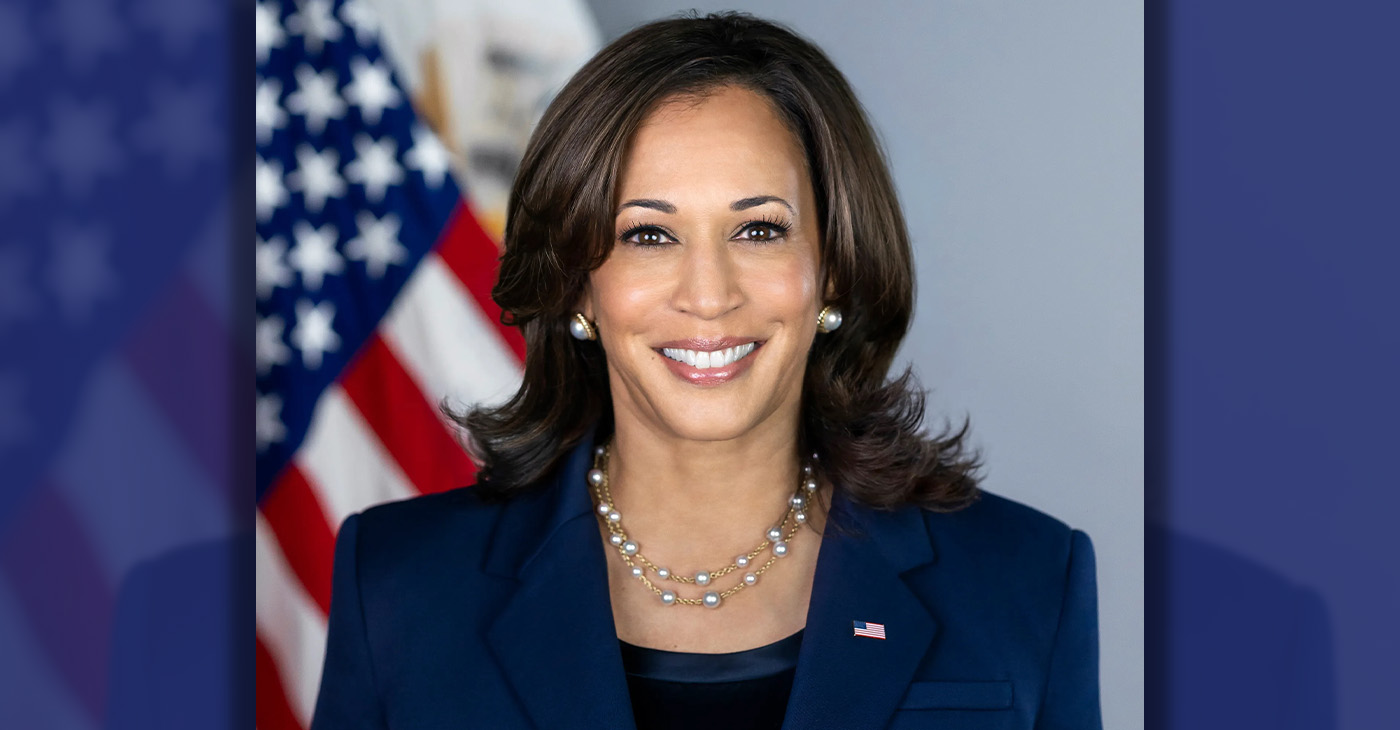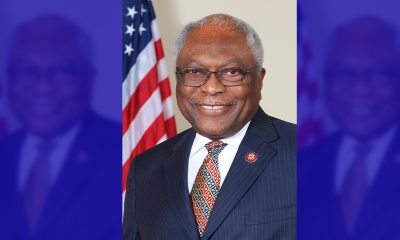Business
White House poised for increased ethnic diversity and a Black agenda, political candidates in play for both

The political action committee of the Black Economic Alliance (BEA) endorses political candidates whose work supports prosperity and economic security for Black Americans. Launched in 2018, consisting of an astute and elite core of business and political influencers, BEA has since brought awareness and education to a wide range of voting constituents, now through virtual engagements, given restrictions wrought from the COVID19 pandemic. Beforehand, they assembled in-person “gatherings of the minds” to address matters of vital import. BEA endorsements and financial contributions are sought after and prized. To date, the organization has bolstered the political campaigns of numerous persons, among them:
Reverend Raphael Warnock (Sr. Pastor of Atlanta’s Ebenezer Baptist Church) who is vying among a very crowded field for US Senate seat
Mike Espy of Mississippi who too is seeking a US Senate seat
Jaime Harrison seeking to unseat South Carolina Republican Senator Lindsey Graham
And yes, there are others on BEA’s roster of 2020 endorsed candidates
Fueled by cachet and strategic comportment, BEA is fast becoming a bellwether of the Black body politic. According to their website, www.blackeconomicalliance.org, the organization’s scope hones in on several targets, including–
OPPORTUNITY ZONES: Modify opportunity zone tax policy to incent new business formation and employment versus real estate projects already in flight. Prioritize opportunity zones for infrastructure spending. Modify allocation formulas that favor rural communities at the county level to more focused opportunity zones.
ENTREPRENEURSHIP: Incent venture capital and private equity firms to incubate and invest in companies in opportunity zones in exchange for favorable carried interest tax rates. Incent business development companies to lend in opportunity zones.
AFFORDABLE HOUSING: Incent rent to own options in public and private housing, alternative financing structures, and technology innovations in modular housing. Modify zoning laws for accessory dwelling units and higher density. Accelerate permitting processes and include affordable housing as part of any federal infrastructure bill.
David G. Clunie is BEA’s Executive Director. He shepherds the operational side of this well-heeled, strategically-aligned body of power brokers, many of them luminaries in their own right.
Before joining BEA, Clunie most recently worked at JPMorgan Chase & Co., where he was a senior member of the Corporate Responsibility department, which uses the bank’s resources to increase opportunities for all people—particularly in the areas of workforce development, financial health, small business expansion, and community development. Clunie led a team of government relations managers who forged partnerships with state and local government officials nationwide on local community investments as well as public policy challenges and opportunities. He was a champion for diversity, equity, and inclusion—chairing the firm’s coalition of Black managing directors, The Black Executive Forum; sitting on the firm’s Diversity Advisory Committee; leading CR’s Equity & Inclusion working group; and serving as an ambassador and mentor for The Fellowship Initiative leadership development program for young men of color.
Prior to joining JPMorgan Chase & Co., Clunie was the Executive Secretary of the U.S. Department of the Treasury. As an appointee of President Barack Obama at the Treasury Department, Clunie was a member of Secretary Jacob J. Lew’s senior staff and ran what is often referred to as the Department’s “nerve center.” There, he was responsible for quality control and policy coordination of all work streams associated with Secretary Lew.
We spoke by phone from his Harlem (New York City) home, regarding leadership and expectations.
Sandra Varner/Talk2SV: The Black Economic Alliance’s political action committee is one to be reckoned with; the organization has given clout, heft, and visibility to a number of viable candidates.
David G. Clunie: Indeed. BEA is a coalition of Black business leaders and allies who prioritize economic progress for the Black community. And, we are trying to bring a new perspective in addition to elevating the conversation around what it means for Black Americans to do well, why that goal is important, and inextricably tied to the success of the US economy. Everything we do–from our political action endorsing candidates or pushing for particular issues as well as our engagement with the private sector and our advocacy on legislation–is all about drivers of economic growth and closing the Black-White wealth gap; removing the obstacles to success for Black communities and what it means to the larger US economy, overall.
To demonstrate, a 2019 McKinsey & Company report shows, if you were to close the Black-White wealth gap, you could add some 4-6% growth to real US GDP by 2028. In more recent reports, findings indicate that racial inequality has cost the US economy, $16 trillion over the last two decades. These are examples of why we are doing the work we’re doing, to make right some very longstanding past wrongs, regarding Black people’s opportunity for economic growth.
Talk2SV: Based on what you’ve said, does the work of BEA lend itself more to legislative policy change or consumer and business economics?
Clunie: All of the above, as an organization, we use the extent of our reach as business leaders. Those who are closely tied to policy will impact the public, private, and nonprofit sectors. It’s our belief and approach that in order to have real systemic change, we need to be rowing in the same direction and pulling on levers in all arenas–industry, public, private, and nonprofits–to really see systemic change. We are doing everything from calling for legislation, helping draft legislation and, helping to push legislation that we think would help on the public policy side, also working closely with the private sector and business leaders. We approach “how” they do business with communities of color; how they’re making decisions internally; what culture they’re creating internally and externally, and how it impacts the economic success of Black Americans.
Activism
Oakland Post: Week of April 17 – 23, 2024
The printed Weekly Edition of the Oakland Post: Week of April 17 – 23, 2024

To enlarge your view of this issue, use the slider, magnifying glass icon or full page icon in the lower right corner of the browser window. ![]()
Business
V.P. Kamala Harris: Americans With Criminal Records Will Soon Be Eligible for SBA Loans
Speaking in Las Vegas on Jan. 27, Vice President Kamala Harris announced a forthcoming federal rule that will extend access to Small Business Administration (SBA) loans to Americans who have been convicted of felonies but have served their time. Small business owners typically apply for the SBA loans to start or sustain their businesses.

By California Black Media
Speaking in Las Vegas on Jan. 27, Vice President Kamala Harris announced a forthcoming federal rule that will extend access to Small Business Administration (SBA) loans to Americans who have been convicted of felonies but have served their time.
Small business owners typically apply for the SBA loans to start or sustain their businesses.
Harris thanked U.S. Rep. Steven Horsford (D-NV-04), the chair of the Congressional Black Caucus, for the work he has done in Washington to support small businesses and to invest in people.
“He and I spent some time this afternoon with business leaders and small business leaders here in Nevada. The work you have been doing to invest in community and to invest in the ambition and natural capacity of communities has been exceptional,” Harris said, speaking to a crowd of a few hundred people at the Brotherhood of Electrical Workers Hall in East Las Vegas.
On her daylong trip, Harris was joined by Horford, SBA Administrator Isabella Guzman, Interim Under Secretary of Commerce for Minority Business Development Agency (MBDA) Eric Morrissette, and Sen. Catherine Cortez Masto (D-Nev).
“Formerly incarcerated individuals face significant barriers to economic opportunity once they leave prison and return to the community, with an unemployment rate among the population of more than 27%,” the White House press release continued. “Today’s announcement builds on the Vice President’s work to increase access to capital. Research finds that entrepreneurship can reduce recidivism for unemployed formerly incarcerated individuals by as much as 30%.”
Business
G.O.P. Lawmakers: Repeal AB 5 and Resist Nationalization of “Disastrous” Contractor Law
Republican lawmakers gathered outside of the Employee Development Department in Sacramento on Jan. 23 to call for the repeal of AB5, the five-year old California law that reclassified gig workers and other independent contractors as W-2 employees under the state’s labor code.

By California Black Media
Republican lawmakers gathered outside of the Employee Development Department in Sacramento on Jan. 23 to call for the repeal of AB5, the five-year old California law that reclassified gig workers and other independent contractors as W-2 employees under the state’s labor code.
Organizers said they also held the rally to push back against current efforts in Washington to pass a similar federal law.
“We are here to talk about this very important issue – a battle we have fought for many years – to stop this disastrous AB 5 policy,” said Assembly Republican Leader James Gallagher (R-Yuba City).
Now, that threat has gone national as we have seen this new rule being pushed out of the Biden administration,” Gallagher continued.
On Jan. 10, the U.S. Department of Labor issued a new rule providing guidance on “on how to analyze who is an employee or independent contractor under the Fair Labor Standards Act (FLSA).”
“This final rule rescinds the Independent Contractor Status Under the Fair Labor Standards Act rule (2021 IC Rule), that was published on January 7, 2021, and replaces it with an analysis for determining employee or independent contractor status that is more consistent with the FLSA as interpreted by longstanding judicial precedent,” a Department of Labor statement reads.
U.S. Congressmember Kevin Kiley (R-CA-3), who is a former California Assemblymember, spoke at the rally.
“We are here today to warn against the nationalization of one of the worst laws that has ever been passed in California, which has devastated the livelihoods of folks in over 600 professions,” said Kiley, adding that the law has led to a 10.5% decline in self-employment in California.
Kiley blamed U.S Acting Secretary of Labor, July Su, who was the former secretary of the California Labor and Workforce Development Agency, for leading the effort to redefine “contract workers” at the federal level.
Kiley said two separate lawsuits have been filed against Su’s Rule – its constitutionality and the way it was enacted, respectively. He said he is also working on legislation in Congress that puts restrictions on the creation and implementation of executive branch decisions like Su’s.
Assemblymember Kate Sanchez (R-Rancho Santa Margarita) announced that she plans to introduce legislation to repeal AB 5 during the current legislative session.
“So many working moms like myself, who are also raising kids, managing households, were devastated by the effects of AB 5 because they lost access to hundreds of flexible professions,” Sanchez continued. “I’ve been told by many of these women that they have lost their livelihoods as bookkeepers, artists, family caregivers, designers, and hairstylists because of this destructive law.”
-

 Activism4 weeks ago
Activism4 weeks agoOakland Post: Week of March 20 – 26, 2024
-

 #NNPA BlackPress3 weeks ago
#NNPA BlackPress3 weeks agoCOMMENTARY: D.C. Crime Bill Fails to Address Root Causes of Violence and Incarceration
-

 #NNPA BlackPress3 weeks ago
#NNPA BlackPress3 weeks agoMayor, City Council President React to May 31 Closing of Birmingham-Southern College
-

 #NNPA BlackPress4 weeks ago
#NNPA BlackPress4 weeks agoCOMMENTARY: Lady Day and The Lights!
-

 #NNPA BlackPress3 weeks ago
#NNPA BlackPress3 weeks agoFrom Raids to Revelations: The Dark Turn in Sean ‘Diddy’ Combs’ Saga
-

 #NNPA BlackPress3 weeks ago
#NNPA BlackPress3 weeks agoBaltimore Key Bridge Catastrophe: A City’s Heartbreak and a Nation’s Alarm
-

 Activism3 weeks ago
Activism3 weeks agoOakland Post: Week of March 27 – April 2, 2024
-

 #NNPA BlackPress3 weeks ago
#NNPA BlackPress3 weeks agoBaltimore’s Key Bridge Struck by Ship, Collapses into Water




















































